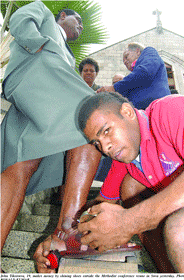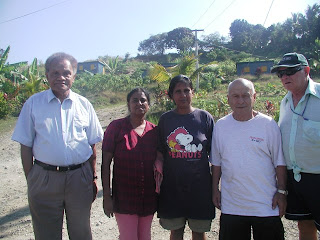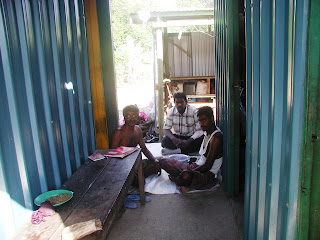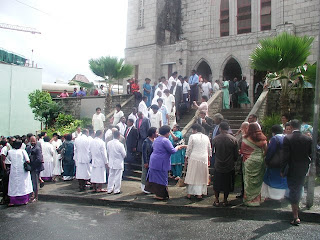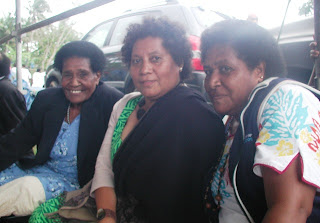from w
Okay it’s nice to be cool and look on the bright festival side of life in Suva and go to Hibiscus special events, but there is another side that makes me burn bright with anger and passion. There is plastic everywhere. Supermarket stuff. Fresh vegetable market. Everything is put into a plastic bag. So where do the bags end up? Some must accidentally go down waterways, creeks, rivers, into the sea, and cause gross damage to sea life. I hate plastic.
What can we do about it then?
Refuse to accept any item in a plastic bag.
Take recycle bags everywhere you shop and put everything straight in. No plastic. Teach children the same, and never to throw plastic items into the sea, into a garden, into a river.
A few years ago I was angry when I walked along a Macuata coastline, a pristine area I thought, then I saw lots of rubbish entangled in the mangroves. The culture just has to change.
I noticed a story about plastic discussed briefly on the tribewnted website. It was from a Vancouver publication -
full article here.
August 14, 2008
Waves of disaster By Roberta Staley
(some of the article)
They are called lantern fish, silvery navigators of the ocean’s deepest depths, bug-eyed, blunt-nosed, and gap-mouthed, with close-set rows of pointy teeth. Every night around the globe, at least 600 million tonnes of these finned creatures, along with a few related species—which make up as much as 90 percent of deep-sea fish biomass—swim upward from their dark hiding places to near the ocean’s surface to gorge on zooplankton, made up of organisms that are often too tiny to be seen with the naked eye, such as the shrimplike krill, jellyfish, and arrow worms.
As they forage, the lantern fish, up to 15 centimetres in length when mature, are snapped up by larger marine creatures: seals and whales, squid, and commercial fish like yellowfin tuna, swordfish, mahi-mahi, sharks, and salmon. A handful of commercial fisheries around the world also catch this small delicacy to sell to consumers in Asia and Eastern Europe.
Just a simple fish tale? Unfortunately, no. Rather, it is a tale of environmental and human-health disaster in the making, as the lantern fish’s bounteous numbers give it an importance in the global food chain that far outweighs its diminutive size and prosaic appearance.
For the past half-century, the ocean has been a dumping ground for human detritus, most notably plastic. Nonbiodegradable, plastic doesn’t readily decay and can last upward of 1,000 years. It is made of molecules, called monomers, that are created from petroleum. Linked together to make plastic, monomers become polymers.
When plastic is discarded in the ocean, these polymer chains start to break apart, creating a floating confetti on the surface. These minute red, blue, and clear pills are mistaken by lantern fish for zooplankton, says Charles Moore, founder of the Long Beach, California–based Algalita Marine Research Foundation, a private ocean-research organization that is affiliated with the University of California at Irvine and the University of the Pacific in Stockton. In some areas of the ocean, plastic outnumbers surface zooplankton six to one, Moore says.
This is more than unappetizing—it’s poison. Plastic is oil-soluble, and it both absorbs and releases poisons: PCBs, or polychlorinated biphenyls, a persistent environmental pollutant; dioxin, a known human carcinogen; and gasoline and other petroleum-based products. These substances end up in the ocean through illegal biochemical- and garbage-dumping (despite international conventions against polluting), oil spills, and sewage and street runoff.
Lantern fish have no “genetic ability to differentiate between zooplankton and plastic”, Moore says. “We have been screwing up the ocean with plastic for 50 to 60 years. The fact that we’ve done it so fast and that it has penetrated so low into the food chain is alarming, but we’re just beginning to make a scientific assessment of what this means.”
This year, the Algalita laboratory conducted necropsies on 600 lantern fish caught in the Pacific Ocean. More than half of these fish had plastic fragments inside their gastrointestinal tract. One Algalita technician found 84 pieces of plastic in the stomach of a 6.3-centimetre lantern fish. Moore says these findings are “statistically significant”.
Not only are these fish being poisoned, they are not putting on fat stores needed for reproduction, says Moore, whose findings on plastic consumption by lantern fish will be published this fall in the prestigious scientific journal Environmental Research.
Plastic has usurped the wise simplicity embedded within the evolutionary food chain, in which each link nourishes the one above. Plastic bits are consumed by lantern fish, which are consumed by larger fish like tuna that, in turn, end up in tin cans in the kitchen cupboard. ……
How did plastic come to rend the natural cycle of the ocean, the womb of Earth whence all life, from plants to insects to humans, sprang, perhaps four billion years ago? And what are the implications for humans as our oceans are churned into a soup of chemical and plastic?
Frederick vom Saal, professor of biological sciences at the University of Missouri at Columbia, is a world-recognized expert on the effects of plastic-related chemicals on fetal development, growth, and sexuality. Creatures like the lantern fish are, vom Saal says, the “canary in the coal mine. People should be concerned about the degradation of the aquatic system, because if it goes, life as we know it is going to go.”
Some of the chemicals used to make plastic cause an array of problems in laboratory animals, including metabolic upset, obesity, lowered sperm count, prostate tumours, accelerated sexual maturity, breast tumours, and miscarriages, vom Saal says. These findings can be extrapolated to all species, he says, because cellular mechanisms are virtually identical in “mouse, fish, rat, or human. The mechanisms developed over hundreds of millions of years of evolution and are extremely similar across all vertebrates. If they can be harmed, so can we.”
……Despite warnings—it has been known since the 1930s that BPA is an endocrine disruptor—nothing has been done to initiate a comprehensive recycling program with the ultimate objective of achieving zero garbage output, Moore says. “The ocean really needs us to embody a zero-waste culture on land,” Moore says. “That’s the only way she is going to heal herself.”
.......

